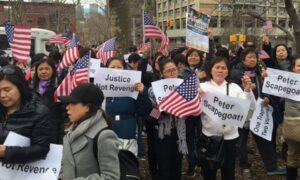
The Voices Of The Community Be Amplified And The Change They Seek Be Realized.

In a poignant reflection of the ongoing
challenges facing the community, Speak
Out Richmond has expressed deep
frustration over the lack of progress on
several key social issues affecting
residents. Despite ongoing advocacy
efforts and public awareness campaigns,
many members of the Richmond
community feel that their voices are
going unheard, and their concerns are
not being addressed. This stagnation has
resulted in disillusionment among
residents who are eager for change but
find themselves confronted with
bureaucratic hurdles and a lack of
responsive action from local officials.
The Issues at Hand.
The concerns raised by Speak Out
Richmond encompass a range of critical
social issues, including affordable
housing, public safety, education, and
racial equity. Each of these areas has
significant implications for the quality of
life in Richmond and reflects broader
systemic challenges that have persisted
for years.
One of the most pressing issues is the
availability of affordable housing. As
housing costs continue to rise, many
residents are struggling to find safe and
stable homes. Speak Out Richmond
highlights the need for comprehensive
housing policies that address the needs
of low- and middle-income families.
“People should not have to choose
between paying rent and putting food on
the table,” said community advocate Lisa
Ramirez. “We need actionable plans
from our leaders to ensure everyone has
access to affordable housing.”
Public safety is another area where
community members are seeking
change. Recent incidents of violence and
crime have sparked fears and heightened
anxiety among residents. Speak Out
Richmond has called for improved
community policing strategies and
increased transparency between law
enforcement and the communities they
serve. “We want to build trust between
law enforcement and residents, but that
requires accountability and genuine
dialogue,” stated Malik Johnson, a
spokesperson for Speak Out Richmond.
Educational Disparities.
Education is also a critical issue,
particularly as many schools in
Richmond struggle with underfunding
and inadequate resources. Speak Out
Richmond advocates for equitable
funding for all schools, emphasizing that
every child deserves access to a high-
quality education, regardless of their zip
code. “The future of our community
depends on our children’s education,”
said Ramirez. “We cannot afford to let
inequities in our school system persist.”
Racial equity is another focal point for
Speak Out Richmond. The organization
has raised concerns about systemic
racism and its pervasive impact on
various aspects of life in Richmond, from
policing to housing to education.
Community members are demanding
policies that promote equity and justice
for all residents. “We can no longer
accept empty promises. We need real
change and accountability,” said
Johnson.
Disappointment in Local Leadership.
Despite these pressing concerns, Speak
Out Richmond laments a lack of action
from local leadership. Community
members feel that their needs are not
being prioritized and that there is a
disconnect between the elected officials
and the constituents they represent. “We
have repeatedly raised these issues, yet it
feels like our cries for help fall on deaf
ears,” said Ramirez.
This sentiment has been echoed by
various community members who
attended recent town hall meetings.
Many expressed frustration with the
slow pace of change and the absence of
concrete plans to address the social
issues plaguing the community. “It’s
disheartening to see the same issues year
after year without meaningful progress,”
said long-time resident Carol Thompson.
“We need leaders who are willing to
listen and act.”
Moving Forward: A Call for Action.
In light of these challenges, Speak Out
Richmond is calling for increased
engagement and collaboration between
community members, local leaders, and
organizations. They are advocating for
the establishment of task forces focused
on key social issues to ensure that
community voices are included in
decision-making processes. “We need to
come together as a community to hold
our leaders accountable and demand the
change we deserve,” Johnson urged.
Additionally, Speak Out Richmond plans to continue its outreach efforts, hosting community forums and workshops to educate residents about their rights and empower them to advocate for change. “We believe in the power of collective action,” Ramirez said. “When we unite our voices, we can create the change we want to see in Richmond.”
Conclusion.
As Speak Out Richmond laments the lack of progress on critical social issues, the organization remains steadfast in its commitment to advocating for the needs of the community. The frustrations expressed by residents underscore the urgent need for action, accountability, and meaningful dialogue between community members and local leadership. While the road ahead may be fraught with challenges, the resilience and determination of Richmond residents provide hope for a future where social justice and equity are at the forefront of the community’s agenda. Only through collaborative efforts can the voices of the community be amplified and the change they seek be realized.







